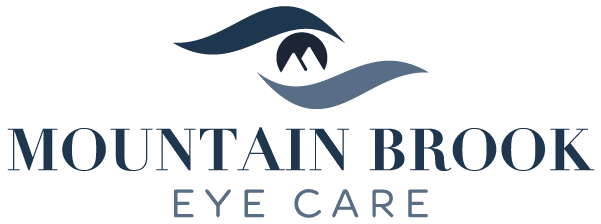How Does Your Diet Impact Eye Health?

Many people overlook the link between diet and eye health. A well-balanced diet rich in essential vitamins, minerals, and antioxidants can significantly maintain your eye health. Conversely, a poor diet lacking key nutrients can lead to potential eye problems and disarm the ability of the eye to protect itself on the metabolic level.
Which Nutrients are Beneficial for Eye Health?
Omega 3 Fatty Acids
Omega 3 fatty acids (FA) stand out for their role in various bodily processes, including eye health.
Ideally, the ratio of Omega 6 FA to Omega 3 FA in our diet should be balanced at 1:1. However, the typical Western diet deviates significantly from this recommendation, with ratios often as high as 15:1. This skewed ratio is believed to contribute to a myriad of health issues, including cardiovascular disease, autoimmune conditions, cancers, and inflammatory conditions.
Unlike Omega 6 fatty acids, which tend to exacerbate inflammation, Omega 3 fatty acids have anti-inflammatory properties. This distinction makes Omega 3 FAs crucial for maintaining overall health, including heart and brain health. Furthermore, substantial evidence supports their beneficial effects on eye health.
One notable example is Dry Eye Syndrome, a prevalent eye condition characterized by inflammation on the ocular surface, leading to discomfort and vision disturbances. Omega 3 fatty acids have demonstrated their efficacy in reducing dry eye symptoms by mitigating inflammation.
As a result, Omega 3 FA supplements are routinely recommended to help alleviate dry eye symptoms and promote overall eye health, thanks to their potent anti-inflammatory characteristics.
Lutein, Zeaxanthin, and Meso-Zeaxanthin
Lutein, Zeaxanthin, and Meso-Zeaxanthin, are in a molecule class known as Xanthophylls, a category of Carotenoids . They are essential pigment molecules found in the retina. For years, individuals diagnosed with Age-related Macular Degeneration (AMD) have relied on supplements containing these molecules to slow progression of the disease. Their primary function is to protect the delicate photoreceptor cells of the retina.
These remarkable molecules possess many beneficial properties, including antioxidant anti-inflammatory qualities and the ability to absorb high-intensity light. Consequently, they have neuroprotective benefits as well.
Excitingly, recent evidence suggests that xanthophylls offer benefits beyond AMD management. Studies indicate that these molecules can enhance visual performance across all age groups. They contribute to improvements in contrast sensitivity, light-to-dark adaptation, vision in low-light conditions, and glare tolerance.
The multifaceted benefits of xanthophylls make them invaluable for maintaining optimal eye health and visual function throughout life.
Foods high in Omega 3 FAs and Xanthophylls
Omega 3 fatty acids are abundant in certain types of fish, making seafood an excellent source. Fatty fish such as salmon, tuna, and herring are particularly rich in Omega 3s. Additionally, other seafood options like shrimp and mussels also contain these essential fatty acids. For those following a plant-based diet, nuts and seeds are excellent sources of Omega 3s. Flaxseeds and walnuts, in particular, are renowned for their high Omega 3 content, making them valuable additions to any diet.
Xanthophylls are primarily found in plant-based foods, with green leafy vegetables being among the richest sources. Spinach, kale, and collard greens are excellent choices for increasing xanthophyll intake. Additionally, corn, egg yolks, and avocados also contain significant amounts of these beneficial pigment molecules. Including various foods in your diet ensures a diverse range of nutrients that support overall eye health.
Supplements for Eye Health
While obtaining essential nutrients through a balanced diet is crucial for maintaining eye health, sometimes dietary intake alone may not suffice. In such cases, supplements can be valuable additions to support ocular health and address specific nutritional needs.
At Mountain Brook Eye Care, we offer a selection of high-quality supplements to complement your dietary intake and ensure you’re doing the most for your ocular health. Whether you’re looking for Omega 3 fatty acids, xanthophylls, or other essential nutrients, our optometrist can provide personalized recommendations based on your individual eye health goals and dietary preferences.
Visit an Eye Doctor in Mountain Brook, AL
Understanding the connection between diet and eye health can help you maintain optimal vision and reduce the risk of age-related eye conditions. If you want to learn more about how your diet can affect your diet, contact us to schedule an eye appointment at Mountain Brook Eye Care in Mountain Brook, AL. Our team can provide personalized advice on your diet and offer tailored solutions to address your unique eye care needs.
Dr. Jeremy Edgerly
Dr. Edgerly has been actively practicing optometry since 2012 in a family practice setting. He is confident in his ability to accurately diagnose, treat and manage conditions of the eye and local structures. He attended the University of Alabama at Birmingham and earned a Bachelor of Science. Upon completing his undergraduate studies, he enrolled in the UAB School of Optometry, where he earned a Doctorate in Optometry. There, he received specialized training in ocular diseases, contact lenses, pediatrics, and refractive and cataract surgery co-management.

